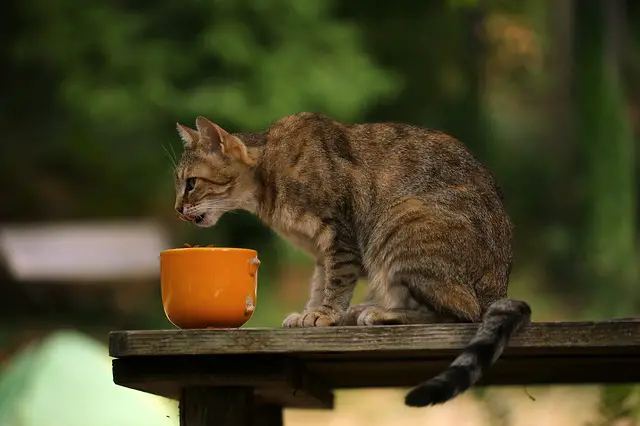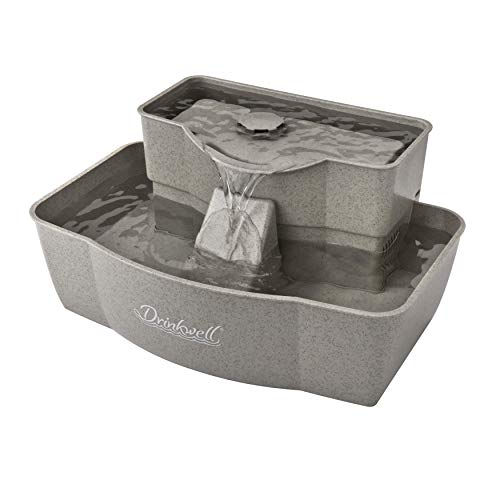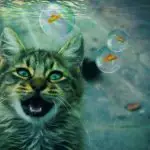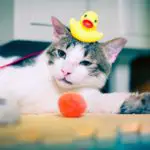How long can cats go without food and water is often something all cat parents wonder about when their beloved pet refuses food or water.
Another time when one would ask ‘How long can cats go without food and water’ is when they have to leave their cat home alone for prolonged periods of time.
In any case, cats can go longer without food but they should never be left without fresh drinking water for long.
Dehydration is a serious matter in cats, one that you should not ignore.
In this guide, I will tell you exactly how long can cats go without food and water. I will also discuss some tips to feed your cat when you are away. We will also talk about ways to rehydrate a cat quickly.
How Long Can Cats Go Without Food and Water?
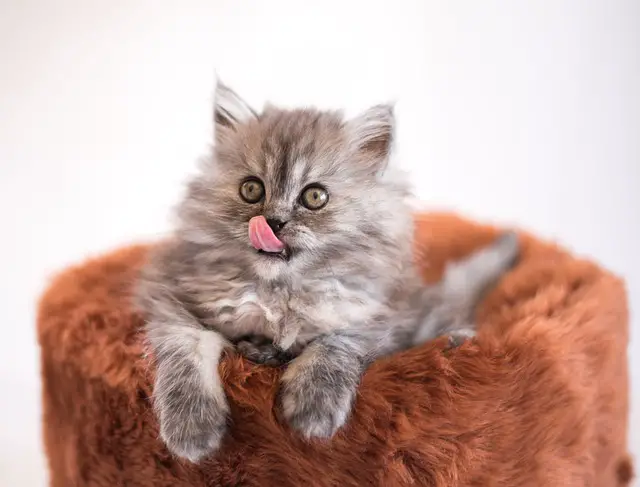
A healthy cat can go without cat food for about 5 to 7 days but it should always have access to fresh drinking water all the time.
Dehydration is the number one killer of pets – your cat should always have a steady supply of fresh drinking water. If your pet does not drink water for prolonged periods, then please take it to the vet.
(I have also discussed some great tips below to make your cat get fluids in case it isn’t drinking water).
In case you are leaving your cat home alone for a few days, please check out my detailed guide on How to Feed Cat Wet Food While Away?
In it, I have also discussed tips how to feed fresh drinking water to your cat even if you aren’t home.
Remember- a cat can get seriously dehydrated within a couple of days and it can even cause kidney failure. Therefore, it is important to keep your cat hydrated at all times.
To reiterate, ‘how long can cats go without food and water?’ – without food, your cat can survive for about a week but without water, it can only survive for a couple of days.
What Happens When a Cat Doesn’t Eat Food or Drink Water? Signs and Symptoms of Dehydration in Cats?
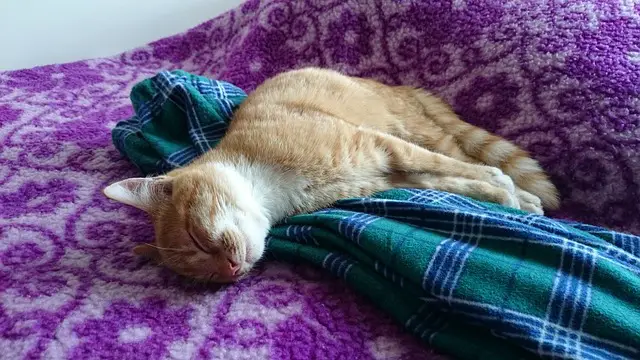
Cats are smart animals. They can easily hide their illness and disease from their pawrents until it is too late.
A change in appetite in an otherwise healthy cat is one of the first red flags that something is amiss. If your cat hasn’t eaten for 24 to 36 hours, then please see your vet – even if it is drinking water.
At the same time, some cats are known to skip a meal or two often – mostly such cats have upper respiratory troubles. In such cases, you can wait for your pet to resume eating before making a trip to the vet.
However, without water, dehydration can quickly set in. So you should treat it as an emergency. Here are some signs to watch out for:
1. Sudden weight loss
One of the most common repercussions of loss of appetite in cats and refusal of food in cats is weight loss. If your cat loses more than or up to 30% of its weight then it is a serious matter.
2. Hepatic lipidosis
Overweight or obese cat that lose weight drastically suffer from hepatic lipidosis or fatty liver disease where the body starts storing fat stores for energy. Hepatic lipidosis is characterized by changes in diet, aggressive weight loss, jaundice, etc. Cats with hepatic lipidosis often become repulsed by food and may show other signs and symptoms like:
- Vomiting
- Diarrhea
- Constipation
- Drooling
- Collapsing
- Muscle wasting
- Downward bending of neck
- Running away from home to avoid eating.
Fortunately, this is a reversible disease and cats can bounce back to health following appropriate treatment.
The key is to watch out for signs of dehydration.
3. Signs of dehydration in cats
Without water, your cat will develop a sunken look. Its gums might be sticky and pale. Cats that refuse to drink water often become depressed and lethargic. Overtime, less water intake can also result in urinary tract disease and kidney disease in cats.
Therefore, you must treat dehydration and low-water intake in cats very seriously and speak to your vet about it right away..
Can a Cat Go Without Food for 8 Hours?
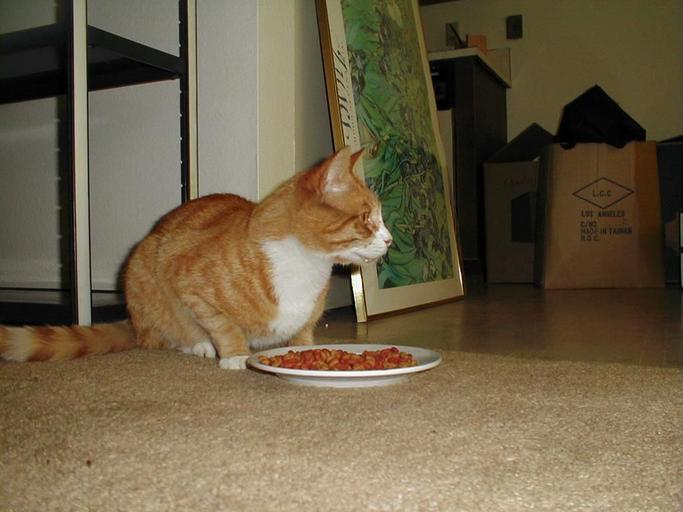
Discuss with a cat owner how often they feed their cats and you will get different answers: once, twice, thrice a day, and so on. Some pet parents even free-feed their cats.
Thankfully, most cats make it a point to let their pawrents know when they are hungry – my cat is rather vocal about it!
Once you have established a feeding schedule, you must stick to it and only make changes if your cat is too skinny or, conversely, it is an obese cat or overweight cat.
To answer the question: can cats go without food for 8 hours – a normal cat cannot. A normal healthy cat with healthy activity levels needs to eat every 6 to 7 hours.
In case you are asking the above question because you have to leave your pet home alone for over 8 hours, then there are many ways to ensure that your cat gets fed on time:
A. Arrange for someone to feed your pet
Ask a kind neighbor or friend to visit your home during the period you are gone. Make sure you keep detailed feeding instructions – how to serve your pet’s food, where the food is kept, and so on. The more details you provide, the better it will be.
If you don’t have friends/family nearby, then hire a pet sitter who can feed your cat at the appropriate time. The great thing about having a pet sitter come over is that they can also clean out your cat’s litter box.
B. Use an automatic cat feeder
These days, automatic cat feeders have made life so much easier for us pet parents. You can schedule these feeders to open at the pre-set time so your cat can get its dry or semi-moist meals.
Most high-quality feeders can hold up to 5 cups of cat food (dry or semi-moist). This should be enough for a cat for about 1 ½ day (about 36 hours).
I still would not recommend leaving a cat alone that long- if things come to that, I’d recommend boarding your pet.
If your cat eats canned or wet cat food, then you can also opt for automatic cat feeders for wet or canned food. These come with ice packs that can keep your cat’s food fresh for up to a day or even over the weekend.
How Long Does it Take to Rehydrate a Cat?
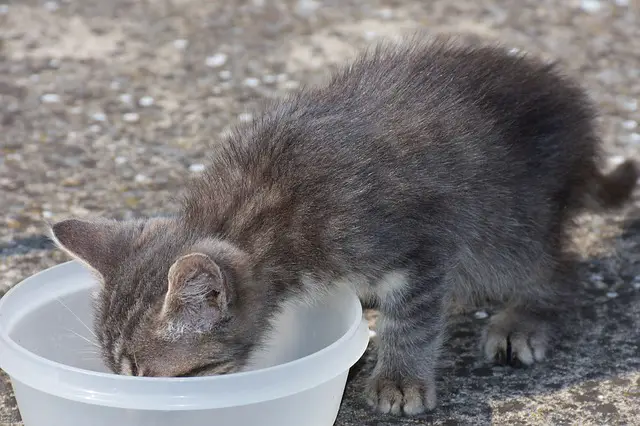
Your cat needs about 4 ounces of water per 5 lb. body weight on a daily basis. Therefore, a 12 lb. cat will need approximately 9-10 ounces of water daily.
If your cat hasn’t been eating or drinking, or has experienced vomiting and/or diarrhea then you must take steps to rehydrate it.
Thankfully, you can rehydrate a cat quickly by coaxing it to sip water or spraying some water on its gums.
Offer it some broth, tuna, or canned cat food which contains more water than dry cat food. I will talk about some more ways to rehydrate your cat quickly in the next section.
Keep a water dish near your cat and keep coaxing it to drink water. If it still won’t drink, please see your veterinarian. Your cat will need fluids intravenously at least for 1-2 hours or an entire day to rehydrate it quickly.
How To Keep a Sick Cat Hydrated?
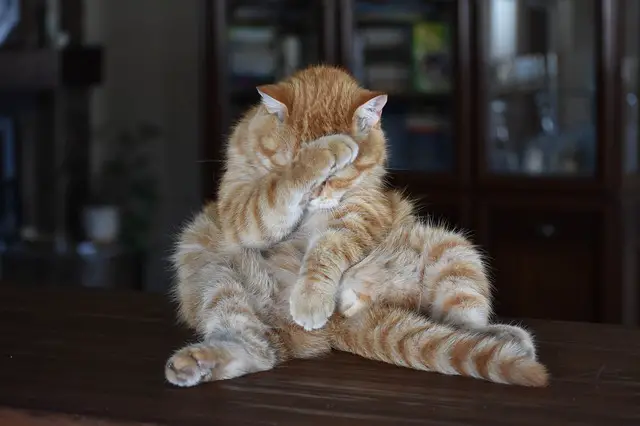
Water is very important for your cat to perform all bodily functions like circulation, digestion, etc. Dehydration can lead to serious health issues and complications.
Here are some steps to rehydrate your cat:
1. Use a cat water fountain
Often, domestic cats don’t drink water from pet water bowls. These bowls tend to accumulate slime and odor and a finicky or a sick cat might refuse water because of this reason.
Flowing water is much more tempting to cats and many pet water fountains are designed to deter slime. Of course, you must still clean them from time to time.
2. Feed it wet food
Wet or canned food contains nearly 80% water. If your cat’s appetite returns, then try feeding some wet or semi-moist food instead of kibble.
3. Add some ice cubes to your pet’s water bowl
A sick cat often prefers the cold sensation of icy water on its tongue. Adding some ice cubes to its regular water bowl might do the trick.
4. Feed it some broth/stew
Make some vegetable or fish stew and coax your cat to eat it. This can prevent fluid loss and rehydrate your pet.
5. Tuna
Most doctors recommend feeding tuna in spring water to sick cat. Tuna contains a lot of water and most cats love it.
What to Do If Your Cat Won’t Drink Water?
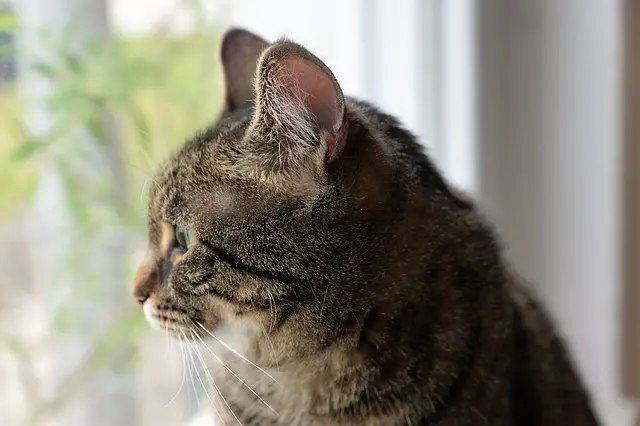
Many underlying health issues can lead your cat to refuse water: diarrhea, food poisoning, vomiting, hypothyroidism, kidney disease, heat stroke, etc.
A. Monitor your cat’s water intake
Often cats drink water when you are away or asleep. So check your pet’s water bowl from time to time to ensure it is drinking water adequately.
Make note of how much water is left the next day. Remember that all cats need to drink almost 3-4 ounce of water per 5 pounds of their body weight.
B. Watch out for dehydration
If your cat isn’t drinking the requisite quantity, watch out for signs of dehydration like loose skin, sunken eyes, unhealthy gums, depression, lethargy, elevated heart rate, etc.
If these symptoms aren’t present, then it should be fine. Maybe your cat simply drinks less than average. It could also be getting its water from other sources like its canned food.
C. Make the water more flavorful
Add some green tea, broth, or canned tuna water to your pet’s water bowl. Such a change of flavor can help.
D. Keep more water bowls around the house
In multi cat households, cats often refuse to drink from the same bowl. Therefore, you need to place multiple water bowls (preferably on all floors of your house.) Don’t forget to clean all bowls regularly.
You can also invest in a cat water fountain as recommended above.
E. Change its water source
Sometimes, changing the source of water can help- switch to a different water filter or try feeding your pet spring/mineral or bottled water.
FAQs on How Long Can Cats Go Without Food and Water?
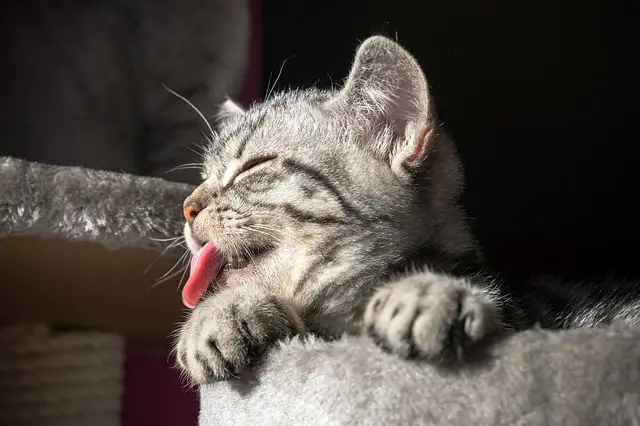
1. Can I feed my cat 3 times a day?
Feed your kitten 3 meals a day. Once your cat is an adult, you can reduce the number of feeds to once or twice a day.
Majority of cats need feeding just once a day. Your vet can decide the number of meals your cat needs based on its weight.
If it is on the skinny side, feed smaller though more-frequent meals. If it is overweight or obese, then feed it just once a day.
2. Do cats stop eating when they are full?
If you free-feed your cat, it should ideally stop eating when full. Some cats over-eat and then puke out the excess food.
If your cat is gaining weight rapidly, then you may want to control its portions and adhere to strict calorie intake.
Remember: obesity in cats can lead to many complications. If your cat does not stop eating when it is full, then you must not free-feed it.
3. How long can I leave a cat alone with food and water?
Never leave your cat alone for more than 24 hours. Most automatic cat feeders also have the capacity to hold just 5 meals – which means you can leave your cat alone for about a day or over a period of 24-36 hours.
It is best to get a friend/neighbor or a pet sitter to keep an eye out on your cat. In addition to water and feeding, your cat’s litter box will also need emptying.
4. Could a cat starve itself to death?
Sometimes, an older cat might starve itself to death but with proper treatment, you can prevent this and even prolong its life.
Conclusion- How Long Can Cats Go Without Food and Water?
Cats can go without food longer than they can go without water.
Healthy cats could refuse food for a couple of days and should be fine as long as they drink fresh water. However, without water, your cat could get severely dehydrated within 24-to-48 hours.
In any case, refusing food and water is a serious matter in cats, one that you should not ignore. Please see your vet right away to rule out serious medical complications.
